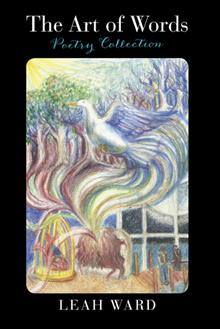 Click for Source Image
Click for Source Image Ajax Bell is an exciting new voice in the world of m/m literature, with her debut novel This Charming Man a delightful blend of coming of age, nostalgia and romance. Set in early 90s Seattle, this book is one that isn’t afraid to create flawed characters, and as such the journey they take is much more rewarding.
 Author: Ajax Bell
Author: Ajax Bell The thumpa-thumpa of the 90s club scene is perhaps the most apt setting for this story, where the short - and wittily titled - chapters help the story maintain a certain sort of groove, like the story is one long playlist and each chapter is a new song, flowing into each other but distinctly changing the atmosphere. This Charming Man is a rhythmical, musical book, full of (to quote Leonard Cohen) minor falls and major lifts, ultimately making for not only a pleasing read, but an almost euphoric feeling when the last page is turned.
With its club scene atmosphere, This Charming Man feels like a spiritual successor of sorts to Queer as Folk, and that carries over to the characterisation. Bell presents the diversity and variety of gay life in Seattle with expert ease, highlighting, but not condemning, the age difference between Steven and John, while also including a number of different supporting characters of different backgrounds, relationship status and subcultures. But another way in which Bell excels with her characters is that she is not afraid to make her characters flawed or unlikable. Adrian is cruel and bitchy a lot of the time, but it is easy to see why Steven has been loyal to him for so long. Steven can be overdramatic and too quick to jump to conclusions, while John is frequently seen as aloof, but we still root for them. In steering away from perfect characters in a perfect romance, Bell has succeeded in creating a realistic and relatable story.
It is also a story in which sex plays a huge and significant role in determining the character’s motivations. Steven’s experience with sex, before John, reveals just how much Adrian’s hurtful behaviour has got under his skin, and even Bell’s vocabulary choices in the various sex scenes reveal the difference in Steven’s character and perspective both before and after John. In the start of the book, the sex scenes feel grimy and impersonal, with them becoming more emotional and crucial as the narrative progresses. Like the narrative structure of the whole book, it feels like a soundtrack, where the presence of and desire for John becomes the single chord that translates a simple melody into something new.





 RSS Feed
RSS Feed
